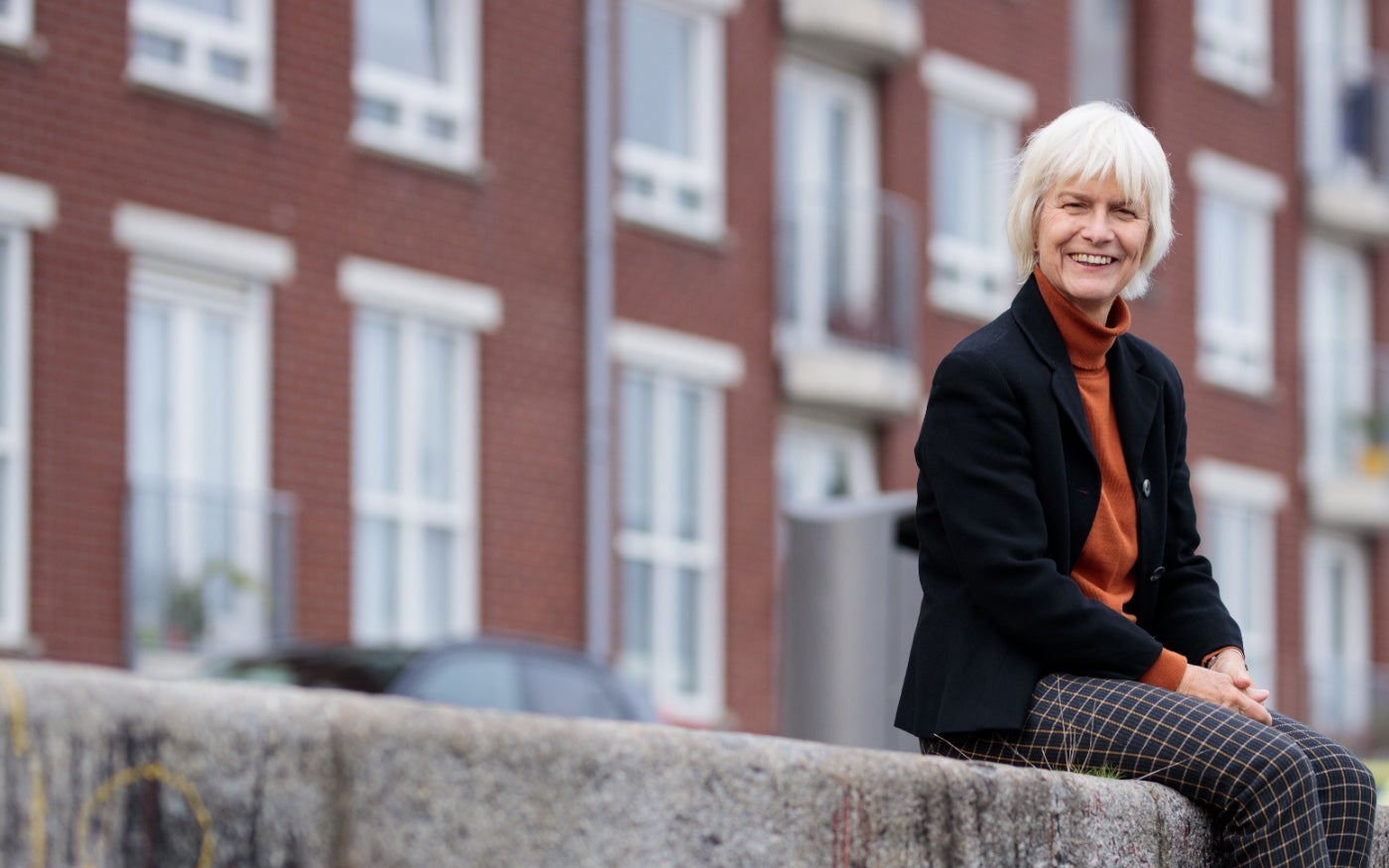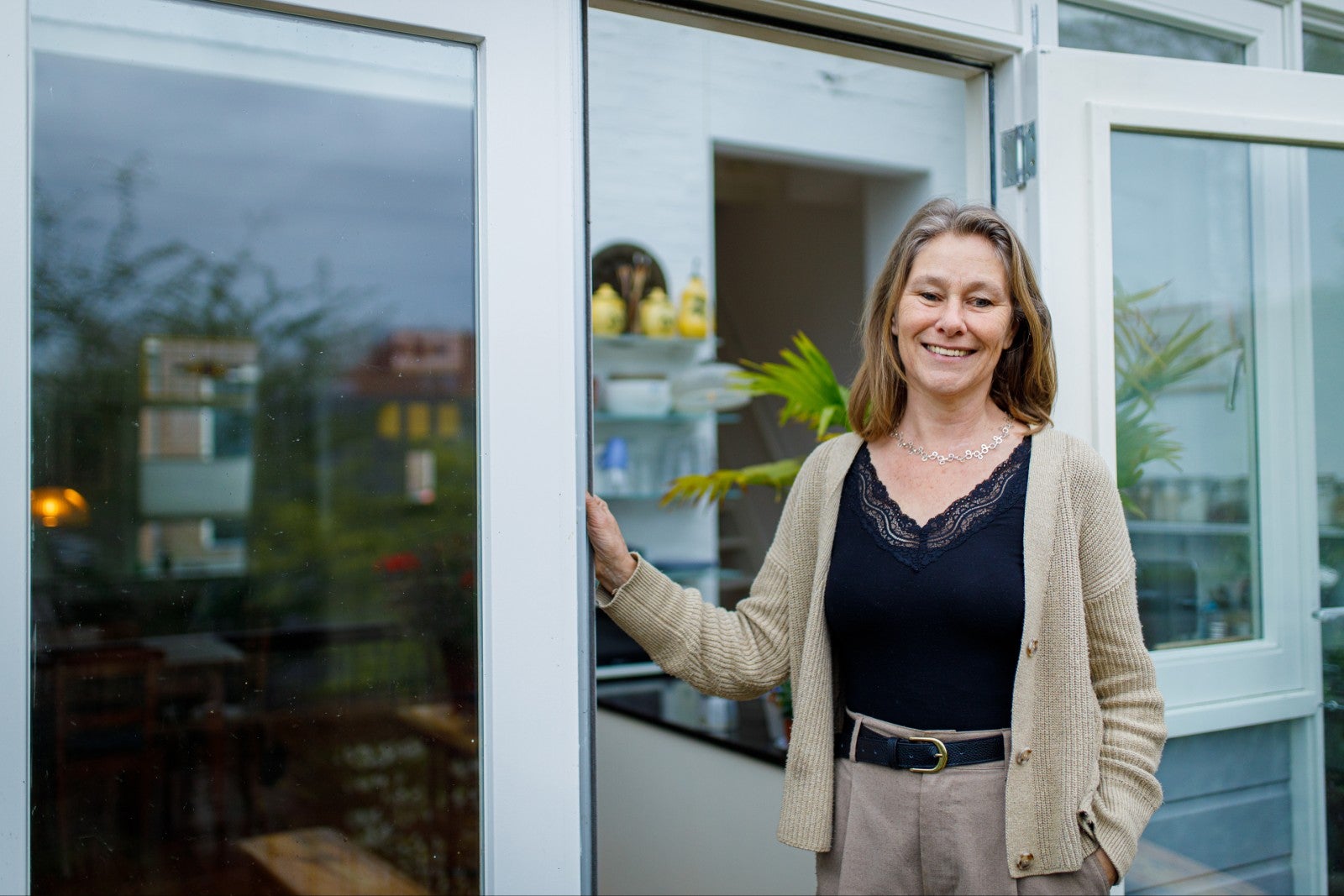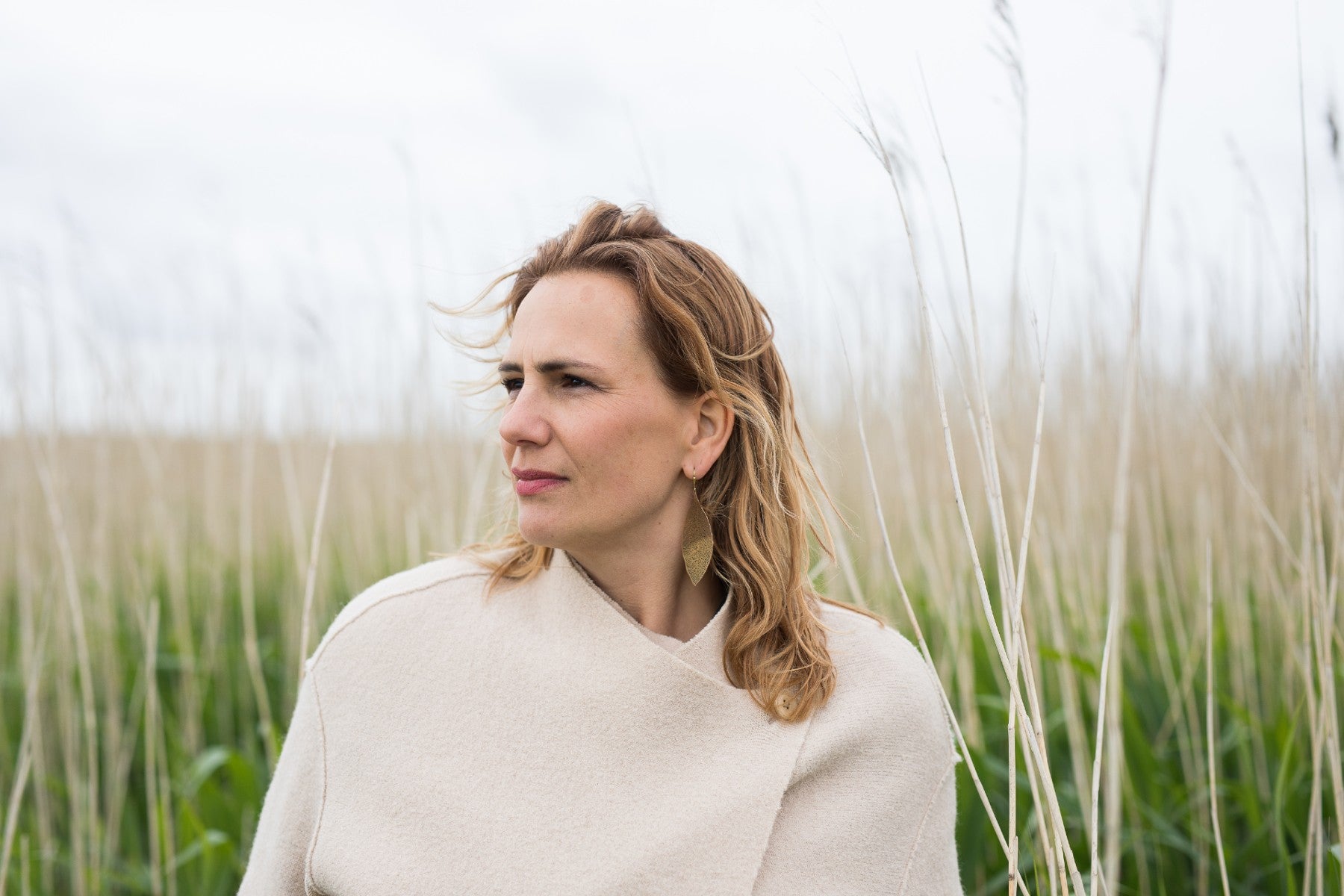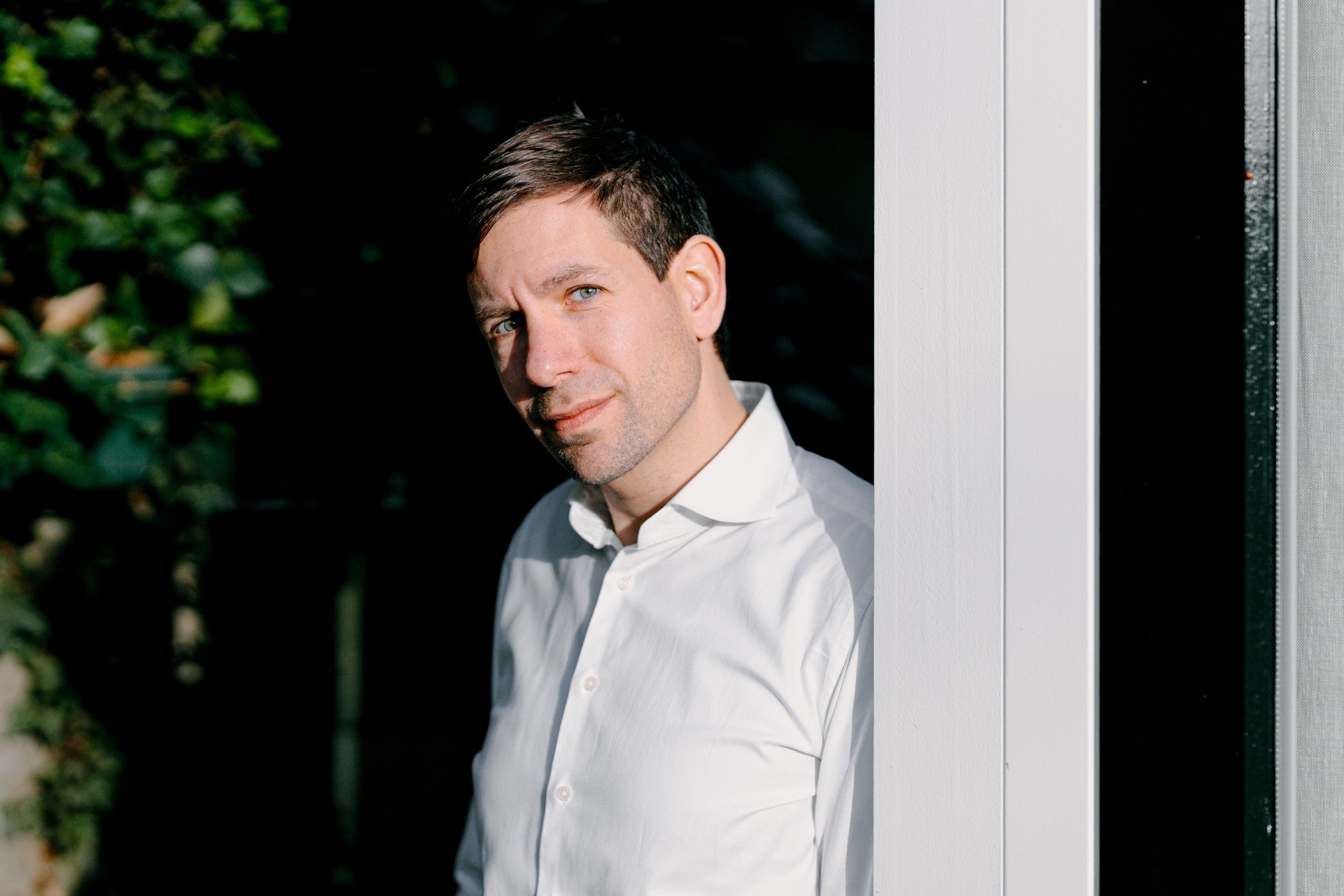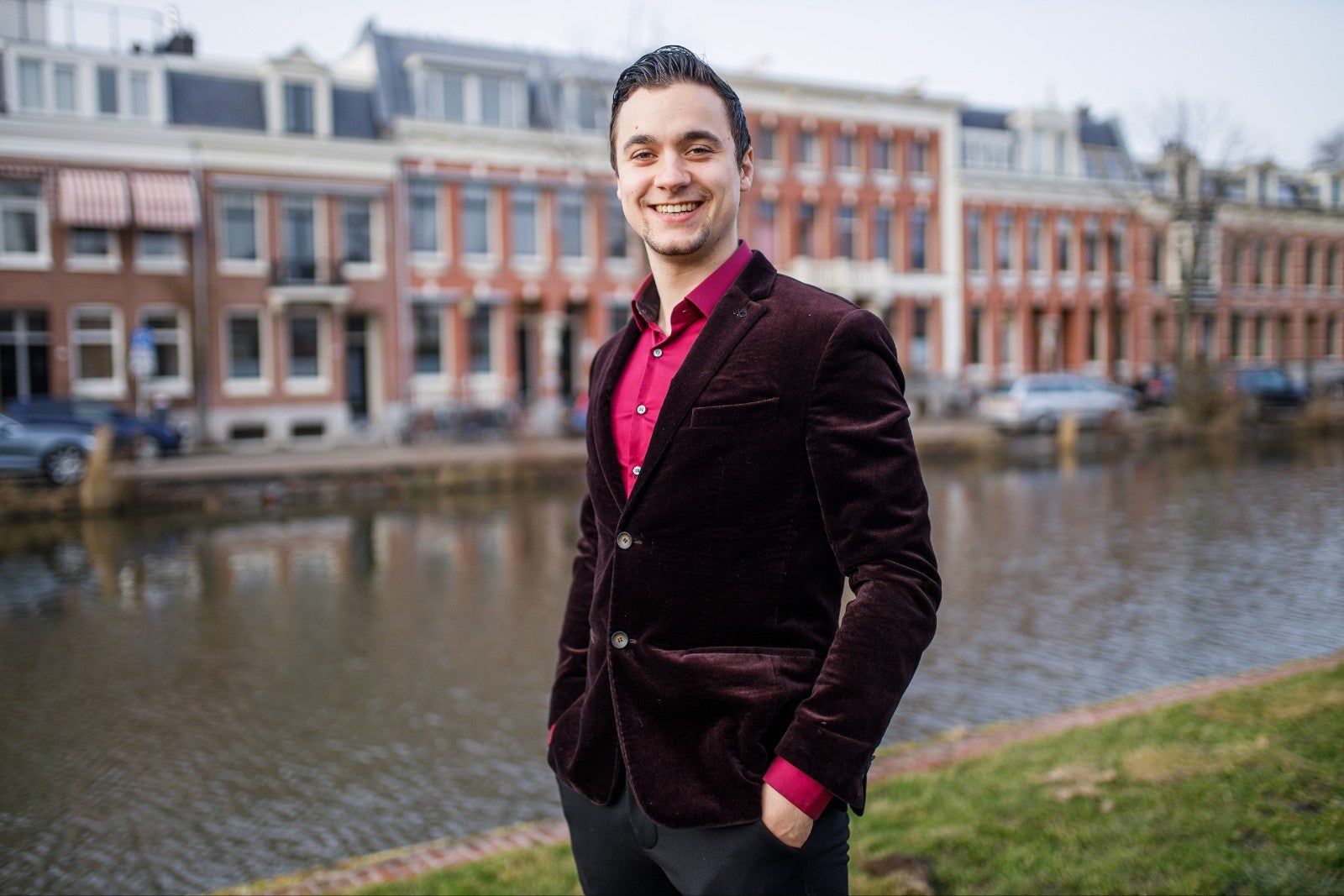Professor of public philosophy, Marli Huijer (67), began her career by studying medicine at VU Amsterdam. She then moved from the medical world to philosophy. She recently published a book about the future of dying.
The former Philosopher Laureate of the Netherlands is available for an interview at the end of the afternoon. „I start the day by writing. If I wake up in the middle of the night, I often write in my mind. Some people lie awake worrying, but I write instead. Then I have to write it down first thing in the morning. After that, I like taking a dive off the jetty next to my house."
You studied medicine at VU Amsterdam. What prompted you to choose that?
„Actually, what I really wanted to do was to go to the Catholic University in Nijmegen like my classmates, but my parents were Protestant, so I had to go to VU Amsterdam, come what may. My grandparents had the green VU Amsterdam collection box on their mantlepiece. After the open day for Medicine at VU Amsterdam, my father and I walked out and I informed him in no uncertain terms that I was not going to study here. He got really angry. Our relationship was tense enough as it was. I had started questioning our faith and he did not have convincing answers as far as I was concerned, so I decided that God did not exist. I think he thought: as long as she goes to VU Amsterdam, she’ll be fine."
What did you think of the study programme?
„It involved learning things by heart; it wasn’t very challenging. I’d start studying just before the exams. That said, I did work hard for Professor Jan Pieter Kuiper’s course on Social Medicine. At that stage, I was much more interested in political ideas about how people should approach health. During my residency, I preferred to listen to the patients’ stories. Like the ones told by a sailor, who told me late one night that he was not afraid to die. That he’d faced so many dangers that it was now a good thing that his time had come."
„If someone refuses to be treated, they are often dismissed as being irrational or emotional."
„As a doctor you are trained to make people better, and less so to accept that people sometimes want to die. I started investigating what motivates people to refuse medical treatment, even if it means they will die. If someone refuses to be treated, they are often dismissed as being irrational or emotional. I believe that you can only truly say ‘yes’ to treatment if you can just as easily refuse it."
In one of your chapters I read that you wrote an essay as a child on the way to produce the best possible care for the elderly. Were you idealistic at an early age?
„When I was ten years old, my best friend and I decided to stop eating sweets for one whole year. For every sweet we didn’t eat, our parents would give us 10 cents. We saved up all those 10-cent pieces in a cigar box and, once the box was full, we sent the money to a mission (evangelism, Ed.)."
„A couple of weeks later, the pastor called him to ask him to please take me off the course."
„I probably got that idea of ‘doing good works’ from the Bible. Even back then, I thought: what’s in the Bible is not the same as how we live. When I was about 17, my father sent me to do my catechism. A couple of weeks later, the pastor called him to ask him to please take me off the course. All I was doing was asking questions that made the other children have doubts."
During the coronavirus pandemic, you regularly spoke out publicly against government measures, like closing the schools. That didn’t go down well.
„That’s right. Since I started speaking out publicly about COVID – and actually before that, when I spoke out about refugees – I’ve not only been getting support, but plenty of threats too. I’m not sure if it’s because there’s more animosity surrounding debates than there used to be. Before, people would sit in the pub and call for so-and-so to be strung up. That was often sorted out on the spot."
„Since we can no longer take it for granted that people have social contacts, these kinds of comments tend to be made online more, rather than face to face. You didn’t notice it that much in the past. You do now. Realising that this has been the case down the centuries is a relief to me. I try to respond to everyone. Sometimes I address the substance of the matter, but not if they cross the line and compare me to a Nazi."
„I’m really not a tinfoil hat wearer who attacks the government’s approach for no good reason."
Did you write De toekomst van het sterven (‘The Future of Dying’) to explain your ideas?
„Yes. From the beginning, I protested against closing schools. Education is priceless. Before you resort to closing schools, you have to carefully weigh up why you are doing it and the value of education. I felt that the government made that decision out of panic. My intention with this book was to demonstrate where my critical remarks come from. I’m really not a tinfoil hat wearer who attacks the government’s approach for no good reason. There is a well-thought-out idea behind it, one that I have been developing since the 1980s."
In your book, you write about the ideal of living as long as possible and in good health, while at the same time there is not much room for illness and suffering in society.
„We all have to live healthy lives and exercise so we can live longer and longer. That ideal means there is no appreciation of ill health, suffering and disease. But if we encourage the entire population to live extremely healthy lives, everyone will get older, but vulnerability to infectious diseases, dementia or cancer will still be there, and these things become more likely as you grow older."

„We can’t cope with caring for all the elderly as it is, and the group of people over 80 is going to grow by a factor of two or three by 2050. Even if we wanted to, we don’t have enough healthcare providers to address this situation. If we fail to find other solutions for this, the rich among us will live a pleasant life financed by private funds and the poor will die at home without much care."
You advocate for more conversations about death and a greater acceptance of it. It would be better for people themselves. I summarise: it’s better to spend your whole life thinking about death from time to time, and then death is less of an issue at the end, than to ignore it all your life and have it be most difficult right at the end.
„Stopping to think about death every now and again is realistic. How long should my life continue? How do I want it to end? What role can my loved ones play? As humans, we are social creatures. Why should we talk about everything else except dying? You only die once. It means the end of all kinds of relationships that you have, and those concerned are left behind. It’s important to say goodbye properly. The experience of dying peacefully is also meaningful for those you leave behind. I hope we can help our children and grandchildren to take a gentler view of death."
Is the thought that you will live on in your descendants a comforting one?
„That notion is very comforting. Those people don’t even have to be members of the family. I find the thought of being part of a chain of human relationships comforting. Even once you have died, you are still part of living organisms. The same applies to what you write or say."
„What you do as a person sets processes in motion."
„You even continue to exist because things you say or write continue to circulate on the internet. I am not on social media, but this week I heard that a discussion between me and the current Philosopher Laureate of the Netherlands, about how much of an activist a philosopher is allowed to be, circulated on Twitter. The discussions will also continue without me, soon I’ll be able to die in peace. But it also happens at a micro level: I’ve turned my parking space into a garden and passers-by talk about it, and say that they should do the same. What you do as a person sets processes in motion."
Your parents died when you were 29 and 35. What changed for you?
„Just as I didn’t dare to rebel against my father when I was 18, I think I have always been very afraid of actually losing contact with my family. After my father died, I wrote an opinion piece on euthanasia in which I mentioned my father’s deathbed. My mother was very cross and hurt about that. I didn’t want to inflict that on her, but equally I wanted to have the freedom to write. My mother also thought it was terrible that I had decided to study philosophy. She thought I should continue as a doctor. I graduated six months after she died, and I immediately got a job in philosophy. I thought to myself: now I can write whatever I want. They can’t get angry anymore. I can’t hurt them anymore. I can’t lose them anymore, because I’ve already lost them.
„For a long time I thought: I’ll just have to find another way for them to love me, even though I don’t believe in God."
„You so desperately want to be loyal to your parents. You love them and hate that they think of you as sinful because you are not religious. You want them to love you, even though you are not a believer. I can’t explain it to my partner, who was brought up in a home without religion. ‘How could your parents not love you simply because you weren’t religious?’ he asks. The strange thing is that I get it. I’d always been loyal to them. For a long time I thought: I’ll just have to find another way for them to love me, even though I don’t believe in God. But I failed. It was a futile battle."
In many of your books, there are quotes from the world of literature. Is that one of the things you love?
„Literature is in the lounge and philosophy in the office. I read a lot. I also think literature has made it easy for me to distance myself from the world of the Protestant Church. I became familiar with other worlds through literature. I still enjoy getting engrossed in a book on a Sunday morning just as much as I would travelling the world. You broaden your horizons by learning about other lives and worlds. The extraordinary thing about literature is that these works are never empirical studies, they are descriptions of reality based on experience. As far as philosophy is concerned, I am also closest to phenomenology: how you reach out to the world and the world to you. You get a grip on the world through literature."
Do you sometimes reflect on your time at VU Amsterdam?
„For sure. VU Amsterdam shaped who I am. After medical school, I trained as a GP there and later got my PhD. Reflection was the common thread that ran through all the study programmes. It really characterises VU Amsterdam."
„Also, a notion taught me by my lecturer, Jan Pieter Kuiper, has often come in handy in my career. He advocated for the official recognition of off-days. I’ve often thought: that concept prevented me from getting burnt out. Kuiper would let you have a day off if you really weren’t coping, and that was called an ‘off-day’. You didn’t have to explain yourself. I’ve been doing it my entire working life. If I was ‘fed up to the back teeth’, I’d call in and say I was sick. And by the following day it was over. I have taken ‘off-days’ all my life without my employer noticing. I can highly recommend it."

